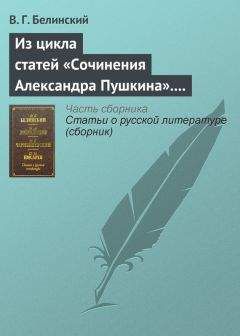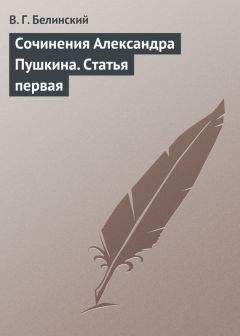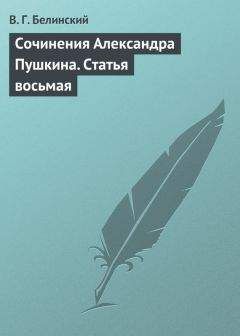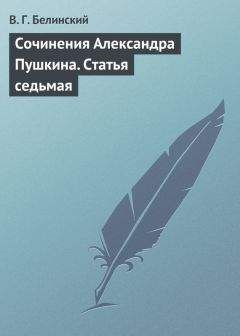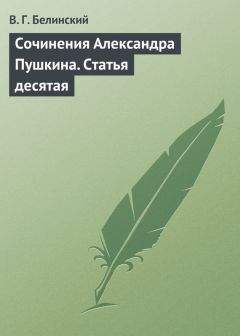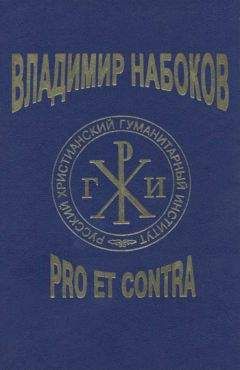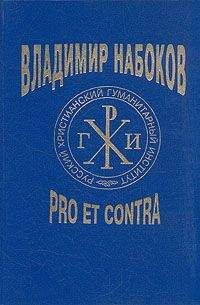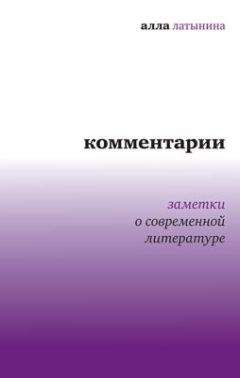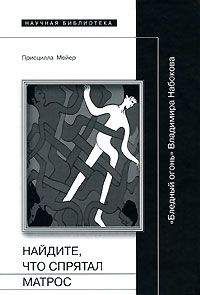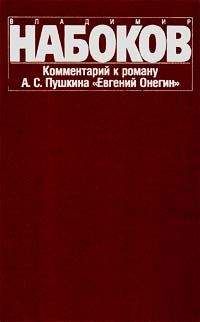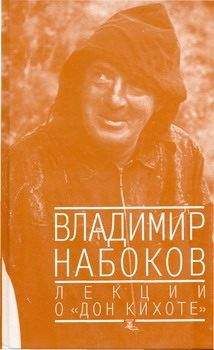Владимир Набоков - Комментарии к «Евгению Онегину» Александра Пушкина
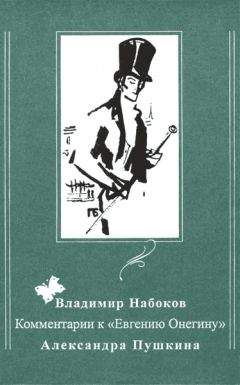
Скачивание начинается... Если скачивание не началось автоматически, пожалуйста нажмите на эту ссылку.
Жалоба
Напишите нам, и мы в срочном порядке примем меры.
Описание книги "Комментарии к «Евгению Онегину» Александра Пушкина"
Описание и краткое содержание "Комментарии к «Евгению Онегину» Александра Пушкина" читать бесплатно онлайн.
Комментарии В. В. Набокова освещают многообразие исторических, литературных и бытовых сторон романа. Книга является оригинальным произведением писателя в жанре научно-исторического комментария. Набоков обращается к «потаенным слоям» романа, прослеживает литературные влияния, связи «Евгения Онегина» с другими произведениями поэта, увлекательно повествует о тайнописи Пушкина.
Предназначена для широкого круга читателей и в первую очередь — для преподавателей и студентов гуманитарных вузов, а также для учителей и учащихся средней школы.
VI
Latin has gone at present out of fashion;still, to tell you the truth,
he had enough knowledge of Latin
4 to make out epigraphs,
expatiate on Juvenal,
put at the bottom of a letter vale,
and he remembered, though not without fault,
8 two lines from the Aeneid.
He had no inclination
to rummage in the chronological
dust of the earth's historiography,
12 but anecdotes of days gone by,
from Romulus to our days,
he did keep in his memory.
VII
life for the sake of sounds,
an iamb from a trochee —
4 no matter how we strove — he could not tell apart.
Theocritus and Homer he disparaged,
but read, in compensation, Adam Smith,
and was a deep economist:
8 that is, he could assess the way
a state grows rich,
what it subsists upon, and why
it needs not gold
12 when it has got the simple product.
His father could not understand him,
and mortgaged his lands.
VIII
I have no leisure to recount;
but where he was a veritable genius,
4 what he more firmly knew than all the arts,
what since his prime had been to him
toil, torment, and delight,
what occupied the livelong day
8 his fretting indolence —
was the art of soft passion
which Naso sang,
wherefore a sufferer
12 his brilliant and unruly span
he ended, in Moldavia,
deep in the steppes, far from his Italy.
IX.
. . . . . . . . . . . . . . . . . . .
. . . . . . . . . . . . . . . . . . .
X
conceal a hope, show jealousy,
shake one's belief, make one believe,
4 seem gloomy, pine away,
appear proud and obedient,
attentive or indifferent!
How languorously he was silent,
8 how fierily eloquent,
in letters of the heart, how casual!
With one thing breathing, one thing loving,
how self-oblivious he could be!
12 How quick and tender was his gaze,
bashful and daring, while at times
it shone with an obedient tear!
XI
in jest astonish innocence,
alarm with ready desperation,
4 amuse with pleasant flattery,
capture the minute of softheartedness;
the prejudices of innocent years
conquer by means of wits and passion,
8 wait for involuntary favors,
beg or demand avowals,
eavesdrop upon a heart's first sound,
pursue love — and all of a sudden
12 obtain a secret assignation,
and afterward, alone with her,
amid the stillness give her lessons!
XII
the hearts of the professed coquettes!
Or when he wanted to annihilate
4 his rivals,
how bitingly he'd tattle!
What snares prepare for them!
But you, blest husbands,
8 you remained friends with him:
him petted the sly spouse,
Faublas' disciple of long standing,
and the distrustful oldster,
12 and the majestical cornuto,
always pleased with himself,
his dinner, and his wife.
XIII. XIV.
. . . . . . . . . . . . . . . . . . .
. . . . . . . . . . . . . . . . . . .
XV
when little billets would be brought him.
What? Invitations? Yes, indeed,
4 to a soiree three houses bid him:
here, there will be a ball; elsewhere, a children's fete.
So whither is my scamp to scurry?
Whom will he start with? Never mind:
8 'tis simple to get everywhere in time.
Meanwhile, in morning dress,
having donned a broad bolivar3,
Onegin drives to the boulevard
12 and there goes strolling unconfined
till vigilant Bréguet
to him chimes dinner.
XVI
The cry “Way, way!” resounds.
With frostdust silvers
4 his beaver collar.
To Talon's4 he has dashed off: he is certain
that there already waits for him [Kavérin];
has entered — and the cork goes ceilingward,
8 the flow of comet wine spurts forth,
a bloody roast beef is before him,
and truffles, luxury of youthful years,
the best flower of French cookery,
12 and a decayless Strasbourg pie
between a living Limburg cheese
and a golden ananas.
XVII
to drown the hot fat of the cutlets;
but Bréguet's chime reports to them
4 that a new ballet has begun.
The theater's unkind
lawgiver; the inconstant
adorer of enchanting actresses;
8 an honorary citizen of the coulisses,
Onegin has flown to the theater,
where, breathing criticism,
each is prepared to clap an entrechat,
12 hiss Phaedra, Cleopatra,
call out Moëna — for the purpose
merely of being heard.
XVIII
the sovereign of courageous satire,
sparkled Fonvízin, freedom's friend,
4 and imitational Knyazhnín;
there Ózerov involuntary tributes
of public tears, of plaudits
shared with the young Semyónova;
8 there our Katénin resurrected
Corneille's majestic genius;
there caustic Shahovskóy brought forth the noisy
swarm of his comedies;
12 there, too, Didelot did crown himself with glory;
there, there, beneath the shelter of coulisses,
my young days sped.
XIX
Where are you? Hearken to my woeful voice:
Are all of you the same? Have other maidens
4 taken your place without replacing you?
Am I to hear again your choruses?
Am I to see Russian Terpsichore's
soulful volation?
8 Or will the mournful gaze not find
familiar faces on the dreary stage,
and at an alien world having directed
a disenchanted lorgnette,
12 shall I, indifferent spectator
of merriment, yawn wordlessly
and bygones recollect?
XX
parterre and stalls — all seethes;
in the top gallery impatiently they clap,
4 and, soaring up, the curtain swishes.
Resplendent, half ethereal,
obedient to the magic bow,
surrounded by a throng of nymphs,
8 Istómina stands: she,
while touching with one foot the floor,
gyrates the other slowly,
and lo! a leap, and lo! she flies,
12 she flies like fluff from Eol's lips,
now twines and now untwines her waist
and beats one swift small foot against the other.
XXI
he walks — on people's toes — between the stalls;
askance, his double lorgnette trains
4 upon the loges of strange ladies;
he has scanned all the tiers;
he has seen everything; with faces, garb,
he's dreadfully displeased;
8 with men on every side
he has exchanged salutes; then at the stage
in great abstraction he has glanced,
has turned away, and yawned,
12 and uttered: “Time all were replaced;
ballets I long have suffered,
but even of Didelot I've had enough.”5
XXII
still on the stage jump and make noise;
still at the carriage porch the weary footmen
4 on the pelisses are asleep;
still people have not ceased to stamp,
blow noses, cough, hiss, clap;
still, outside and inside,
8 lamps glitter everywhere;
still, chilled, the horses fidget,
bored with their harness,
and round the fires the coachmen curse their masters
12 and beat their palms together;
and yet Onegin has already left;
he's driving home to dress.
XXIII
of the secluded cabinet,
where fashions' model pupil
4 is dressed, undressed, and dressed again?
Whatever, for the lavish whim,
London the trinkleter deals in
and o'er the Baltic waves to us
8 ships in exchange for timber and for tallow;
whatever hungry taste in Paris,
choosing a useful trade,
invents for pastimes,
12 for luxury, for modish mollitude;
all this adorned the cabinet
of a philosopher at eighteen years of age.
XXIV
Подписывайтесь на наши страницы в социальных сетях.
Будьте в курсе последних книжных новинок, комментируйте, обсуждайте. Мы ждём Вас!
Похожие книги на "Комментарии к «Евгению Онегину» Александра Пушкина"
Книги похожие на "Комментарии к «Евгению Онегину» Александра Пушкина" читать онлайн или скачать бесплатно полные версии.
Мы рекомендуем Вам зарегистрироваться либо войти на сайт под своим именем.
Отзывы о "Владимир Набоков - Комментарии к «Евгению Онегину» Александра Пушкина"
Отзывы читателей о книге "Комментарии к «Евгению Онегину» Александра Пушкина", комментарии и мнения людей о произведении.







